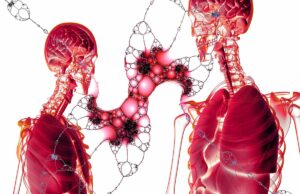The COVID-19 emergency highlighted the hugely labile characteristics of many aspects of the world we live in. Social systems are usually conservative in a sense. They try to maintain an immutable social order. Societies are even capable of absorbing certain tensions generated inside themselves, with the objective of delaying change and maintain themselves constant. The role of many of its social institutions is precisely that, to perpetuate a social order, reproducing ways of thinking and action amongst the citizens. Nonetheless, the emergence of a microscopic pseudo living particle, culprit of the current pandemic, has generated the largest economic and social crisis since World War II in just 5 months.
The initial reaction of many countries to the pandemic declaration was instrumental to the resistance plan for a few months, after which we would go back to the accustomed normalcy. Such position lasted shortly, since a larger fear of contagion and disease, the economic crisis and the lockdown and social isolation, arose almost immediately: fear that the exception would soon become the rule and so, for time impossible to calculate for now, instability would take over the everyday, all under the euphemism, in itself contradictory, of the so called “New Normalcy”.
The role of many of its social institutions is precisely that, to perpetuate a social order, reproducing ways of thinking and action amongst the citizens
The exceptionality of the processes arosed from COVID-19 could in the future become routine, in the rule and norm, as long as they are maintained over considerable time, once the fear that is behind all of those new practices is institutionalized, meaning, when fear of contagion and disease, but also the one of social stigma is normalized and reproduced with the same promptness as that of the virus in our public and private spaces, in the media, in our colleges, in families or companies, even in the uttermost personal and intimate loneliness. It´ll be at that moment when the New Normalcy will have earned its identity card.
As of now it is fear, yes, but fear of the uncertainty of when the pandemic will be over, of the uncertainty regarding the capacity of science to find a treatment or vaccine soon, if the virus is eliminated or on the contrary, if it has come to stay, and we will have to learn to live with it. In the meantime, some see in the context the origin of new forms of relations, of production and of education, fundamentally centered in teleworking and online education.
A world with no need for commuting to work or school, with the subsequent savings in facilities and commutes. A new world where we are capable of innovating pedagogical strategies that surpass the “outdated” patterns of teacher – student relationships interacting in a classroom. A world where time and activity are efficient and productive. A world where individuals are so and not interacting, organized, rebel or discontent societies. A new world for a new type of citizen. A new world, confined, productive, distanced, ordered, controlled; a new world where fear is capable of establishing a new order, a new normalcy. Utopists of the world, unite! Seem to say the heralds of the new order.
Who and under what criteria will design this new happy world? Will the new normalcy be freer, fairer, more democratic and more equal?
Be that as it may, people working for this to be possible are needed to create such new order. Not only doctors or scientists, judges and lawyers that draw up the new practices, that criminalize new offences, that determine the corresponding penalties to the latter; of law enforcement agents that are able to guarantee the new rules of “coexistence”. Today, in Germany or Spain, there are discussions on the need to up the number of “trackers”, that are the people in charge of following up the chain of contagion, until they find the so called “patient zero”, in order to eliminate new virus outbreaks even before the so called community spread.
But between utopia and dystopia there are very few differences that are not simply commonsense. Who and under what criteria will design this new happy world? Will the new normalcy be freer, fairer, more democratic and more equal? For many, any project of a utopian nature will have to consider these aspects, or not come to fruition. Will the new normalcy be capable to take it as an inherent necessity of human nature and as a touchstone for any project looking to establish a new order?
Is Physical anthropologist from the national school of anthropology and history (ENAH) and Doctor of Philosophy from the University of Valencia. Interested in human evolution and our relationship with primates. Convinced that the highest form of knowledge is the result of the interaction between science, philosophy and art.


